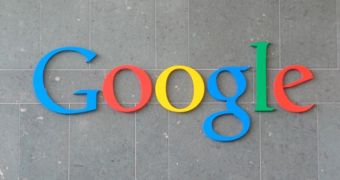The future is approaching fast and it's shaping up to be one where Google has a really big role. Yesterday, the company unveiled its prototypes for the famous driverless cars that it had been working on for years; just one more step towards becoming involved in every aspect of our lives.
No one would have ever thought that it would come to this – a point in history when Google became such a key component of our everyday lives and when it had the potential to become even more, much more.
Google started off as a search engine in a time when there were already a few similar tools out there, but somehow managed to step ahead of everyone else, take the lead, set the trends and become the world’s largest player in the industry.
The Internet company eventually launched Gmail, years after the search engine was founded. This move was such a surprise to everyone that many thought it was a hoax, especially since the webmail service was invite-only in the beginning.
Ever since then, the company has continued to surprise us all, either by inventing something new or by snatching a company that did. Android, YouTube, Docs, Chrome, Chromecast, Chrome OS and Chromebooks, Maps, Gmail, Google+ and more are just some examples of what Google is capable of – delivering tools that we use at almost any given time.
Google's Experiments
Now, Google is expanding in a few new areas. On one hand, Google has worked to create Glass, an innovative device that it hopes to be tomorrow’s go-to device, even though acceptance rates have been low so far. On the other, Google is trying to bring Internet to other places that can’t have a connection in traditional ways. Ultimately, this last part will serve Google’s efforts to have even more users from remote areas of the globe.
Another domain where Google has been working to innovate in is the driverless cars industry. Sure, the company isn’t the sole player in this area, but it has some advantages over its opponents, such as the mix of software integrated to make the car work.
After all, as an example, Google owns Maps, which can help the car accurately pick the right path from point A to point B. By buying Waze, it can use its information about traffic congestions and accidents, while satellite startup Skybox Imaging, which rumors say Google is interested in, could come in handy for even more accurate road mapping.
Top these off with its own operating system, plus an array of other tools and the platform integration offered by Google, and you get a winning combination.
Through the purchase of Nest earlier this year, Google has also taken a step towards home automation. If it eventually buys Dropcam too, it will even add home security to its ever-growing list of areas where it becomes involved in.
What Google is obviously moving towards is building a huge ecosystem where all tools are interconnected, in this case, through Google+, which is silently becoming Google’s backbone.
The Future
It could be a pretty wonderful future – to have everything you want in your life at hand with Google predicting everything you may desire, with your TV connected to your computer and to your other smart devices, with Glass on your head, while letting its driverless cars drive you around town as you relax.
This is an exaggeration, of course, but it may not be too off the path of what Google hopes to accomplish.
There are, however, plenty of downsides. Without going into how much Glass may or may not affect people’s privacy, or how scary it could be to entrust your life in the hands of a machine you cannot possibly control in the least, since the cars have no steering wheel, pedals or breaks or anything else aside from an on-and-off button, there are bigger issues here.
To fully benefit from everything that Google has to offer, you need to trust the company. Logging into your Google account is a pretty big step since it immediately means that your data is most likely recorded and stored – your photos, search queries, GPS location, private conversations, favorite movies and so on.
If you fully trust Google, you could learn to like the interconnected experience offered through its many products. But things aren’t as easy. The privacy concerns that come packed with such a decision weigh heavily on anyone trying to figure out what the best course of action is.
Do you trust Google and let it into your life even more than you’ve done until now? Or do you stay away and try to keep at least part of you hidden from its knowing glare?
That’s a decision that each of us has to make on their own, but whatever you decide, remember that Google is trying to be the future and it may very well succeed.

 14 DAY TRIAL //
14 DAY TRIAL //